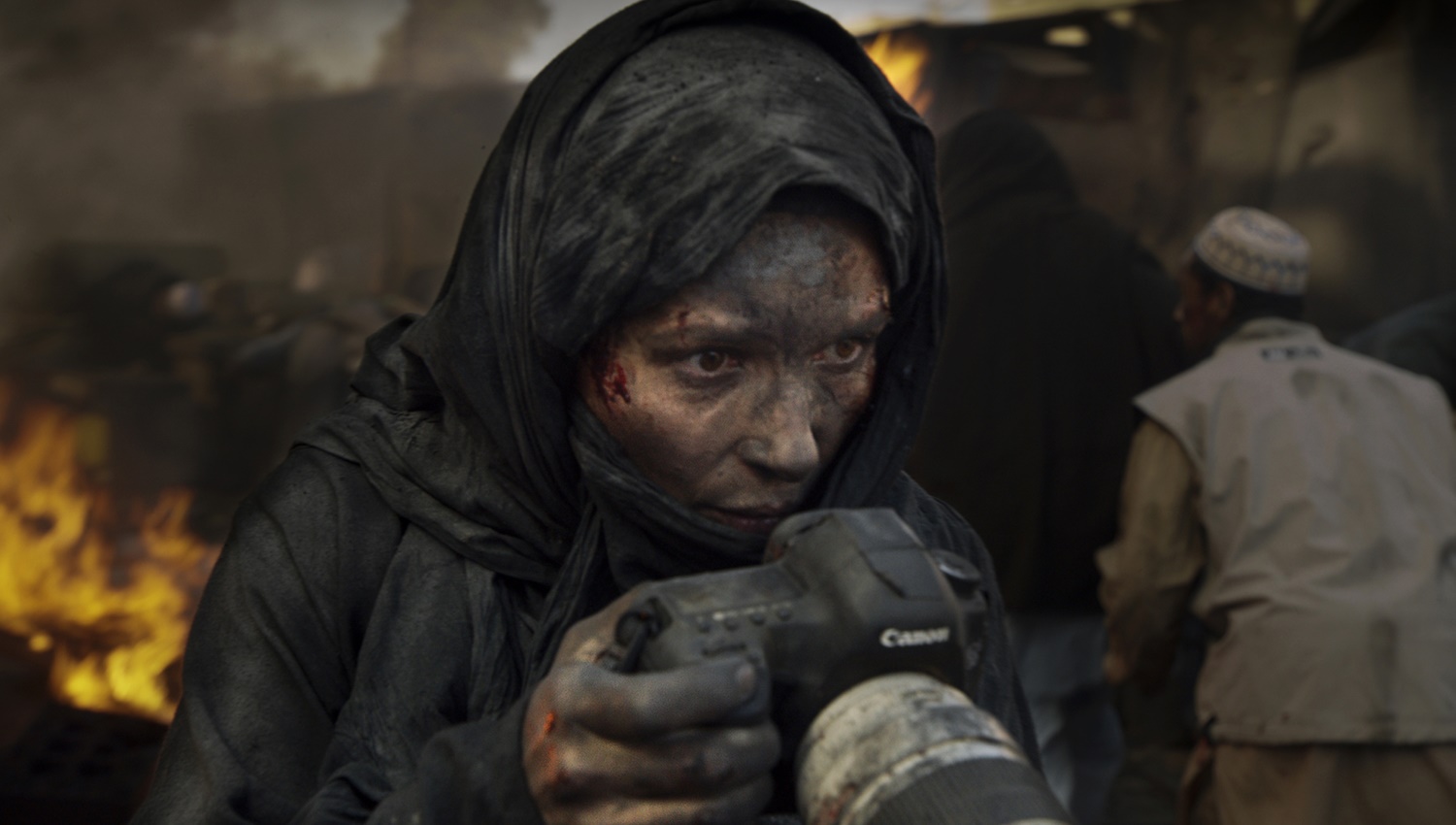
1000 Times Goodnight
Dustin Chase
Throughout 2014 I have heard, read, and been witness to endless reports, articles and topics on the lack of the female roles concerning awards season. However, I look around and see roles like Jessica Chastain in Miss Julie, Marion Cotillard in Two Days, One Night, Juliette Binoche in Clouds of Ils Maria and now, yet again, Juliette Binoche in 1000 Times Good Night. Perhaps you have to dig a little deeper since these are international films, but there are women doing extraordinary work in cinema that no one is paying attention to. Acclaimed director Erik Poppe takes a look at a woman torn between her family and the call to bring awareness to war with photographs. 1000 Times Good Night tackles what films like Veronica Guerin and Fair Game only skimmed the surface of.
The first time we see Rebecca (Binoche), her face is covered in a shroud as she is allowed to photograph chosen women as they prepare to have explosives fixed to their bodies. Deep in the confines of Kabul, Rebecca has an untamable instinct that nearly gets her killed as she fights for the photograph that she hopes will cause ‘newspaper readers to choke on their morning coffee’. After barely escaping with her life, Rebecca returns home to face the distraught faces of her husband Marcus (Waldau) and their two impressionable young girls. She is faced with leaving her high risk, world-renown photo journalist profession or losing her children.
The film is a slow build and a never ending burn after it’s over.
“I hope the photograph was worth it,” Steph, the eldest daughter says to her mother. The turning point of a good movie into a great film occurs when the eldest daughter is looking through mom’s photos of pre-teen girls being mutilated and raped in 3rd world cities. At that moment she understands the purpose and part of the driving force behind what Rebecca believes to be important work. What Steph will face later is dealing with the fact that her mother will choose the work over family. 1000 Times Good Night explores why some individuals choose to have families in the first place. “I hope one day when you are older that you understand there are things inside us we cannot change,” Rebecca offers up as some explanation for her actions.
This is another film about difficult choices; the lines of right and wrong are not existent. It’s moral obligation versus the idea of changing the world. Binoche portrayal and Poppe’s screenplay truly tear into the heart of the issue, as the audience and the family sway from varying sides of the issue. The film is a slow build and a never ending burn after it’s over. Binoche exudes strength, not always in her words, but she conveys what she is thinking with strong inner dialogue. Poppe understands that observing this type of struggle is best done without talking about it so much, he would know since the film is largely based on his own experiences. Would we question a man in this role, leaving his wife to take care of the children? The film asks that question also. There are no easy answers.
Final Thought
Binoche delivers a powerful, resonating performance in one of the best films of the year.
